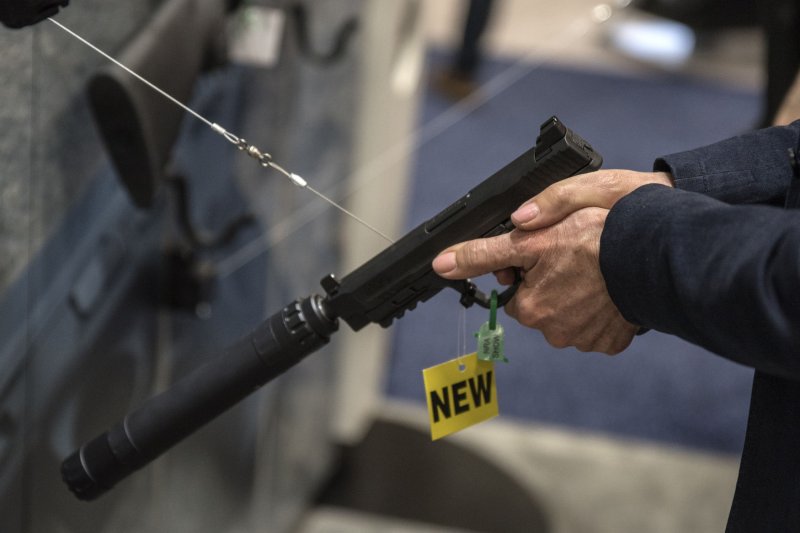The U.S. Supreme Court upheld a lower court ruling that said firearm silencers must be registered File Photo by Sergio Flores/UPI |
License Photo
June 10 (UPI) -- The U.S. Supreme Court declined requests Monday to consider a challenge that says firearm silencers are protected under the Second Amendment, and therefore owners should not be required to register them.
Two cases are behind the challenge, from two men who were convicted of failing to register their silencers. The high court's unanimous decision affirms an appeals court ruling that upheld the men's convictions, saying silencers are not "bearable" arms protected by the Constitution.
The case was brought by Army surplus store owner Shane Cox, who made unregistered homemade silencers, and customer Jeremy Kettler, who bought one. They were convicted of violating the 1934 National Firearms Act, which requires silencers be registered and taxes paid to the government. The law makes it harder to acquire or sell a silencer, but does not constitute a ban. Eight states and Washington, D.C., do ban silencers.
The ruling came less than two weeks after authorities say a worker used a handgun and silencer to kill 12 people in Virginia Beach, Va. on May 31.
Also Monday, the high court agreed to take up a racial discrimination case against Comcast Corp. Entertainment Studios Network, which is African-American-owned and has seven television channels. Owner Byron Allen is suing Comcast and Charter Communications because the cable companies refuse to distribute his stations. The case was rejected at the federal district level but was reversed in the U.S. Court of Appeals. Allen must prove that race was the sole reason for his stations not being carried by the cable provider.
The Supreme Court is expected to rule soon whether to allow a citizenship question on the 2020 census and in a gerrymandering case that could impact the 2020 election. The court will consider whether a redrawing of North Carolina's congressional map violates the constitution. Other cases include a World War I memorial comprised by a 40-foot cross, which some argue violates the separation of church and state, and a case asking for legal protections to trademarks considered vulgar or offensive.















